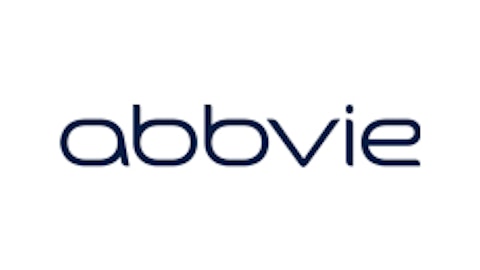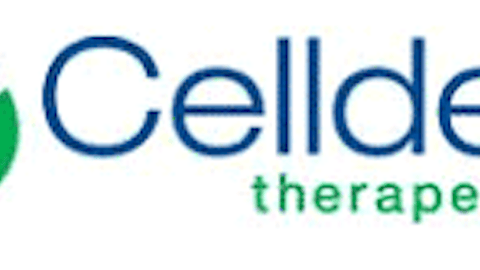What’s the worst nightmare of all pharmaceutical companies? Generics. They might as well be the grim reaper in the eyes of the brand-name pharmaceuticals. Generics completely destroy the pricing power and monopoly one company possesses on a particular drug, costing that particular company billions in lost revenue. Just one example of the devastating effects generics have on the original patent holding company is displayed in the case of Lipitor, a Pfizer Inc. (NYSE:PFE) drug whose patent expired in 2011. Revenue produced by the drug for Pfizer dropped 59% from 2011 to 2012. So when a generic manufacturer receives support from any health organization, it can literally be a billion-dollar game changer.
On June 28, the European Medicines Agency ruled that regulators should give Hospira, Inc. (NYSE:HSP) and South Korean drug maker Celltrion approval to market their version of the drug for the same medical conditions for which Remicade is marketed.
Remicade is a cornerstone drug for Johnson & Johnson (NYSE:JNJ), generating $6.14 billion in revenue for the company in 2012, the largest drug for the company in terms of revenue, accounting for 9.13% of overall company revenue. The generic version being developed by Hospira and Celltrion will be the first biosimilar versions of a monoclonal antibody to be recommended in a major market.
Hospira and Celltrion both rallied extensively after the news of the EMA’s decision was released. Johnson & Johnson (NYSE:JNJ) appears unaffected, only marginally lower on an overall weak market day.
Others will be affected
The target conditions treated by Remicade – Crohn’s disease, ulcerative colitis, rheumatoid and psoriatic arthritis, ankylosing spondylitis, and plaque psoriasis – are also targeted by similar drugs in the subsector, including Humira, Celebrex, and a host of other brand-name drugs. The potential of a generic breed of Remicade may also destroy the pricing power of these other drugs, as all drugs targeting a particular condition compete with each other for customers.
Companies carrying a particular concern are AbbVie Inc (NYSE:ABBV) and Pfizer. AbbVie’s cornerstone drug, Humira, produced $9.26 billion in revenue in the 2012 year. That’s 50.38% of overall company revenue, representing a major dependence on a single drug. Humira treats rheumatoid and psoriatic arthritis, plaque psoriasis, Crohn’s disease, ulcerative colitis, and ankylosing spondylitis; all of which are also treated by Remicade and Hospira’s generic version of the drug. Humira’s patent is set to expire in 2016. Pfizer’s play on this particular market is Celebrex, which treats arthritis pain and inflammation as well as acute pain. In 2012, Celebrex generated $2.72 billion in revenue, representing 4.61% of overall company revenue. Pfizer’s patent on Celebrex is set to expire in December 2015, and was recently extended from May 2014 to the current date.
One-third of the market expected
Last year Remicade generated over $2 billion in sales on the European continent. Under the brand name Inflectra, Hospira expects to begin launching its generic drug in stages in 2013, in countries where Remicade patents are not in force, including eastern, central, and Nordic regions. However, a recent patent extension granted to J&J immortalizes Remicade from competition in major markets such as the United Kingdom, Germany, France, Spain, and Italy until February 2015; after which Hospira plans to expand into these markets. Projections show Hospira’s generic capturing over a third of the European market after approval, representing roughly $666 million, a significant amount of revenue for a company only currently valued at slightly over $6 billion.
Turning back to the United States, the patent for Remicade is not set to expire until 2018, securing a major revenue stream for years to come. This protection of J&J’s drug in the United States also effectively protects Celebrex and Humira from cheap competition in a major market, the United States, until 2018.
The Foolish bottom line
Generics can be devastating to pharmaceutical companies. History proves that over and over again. Johnson & Johnson (NYSE:JNJ)’s largest drug, Remicade, is facing mounting threats from Hospira and its genetic version, Inflectra. As a result of the competition that takes place between similar drugs to treat the same conditions, AbbVie and Pfizer will also be affected by a rollout of Inflectra, which would introduce cheaper competition into the marketplace. AbbVie is of particular concern as a result of its heavy dependence on Humira.
All in all, the news of the EMU’s support for Hospira’s generic version of Remicade is disadvantageous to Johnson & Johnson (NYSE:JNJ), AbbVie, and Pfizer. However, the strategic patents the companies possess in major markets should protect their revenue streams in the near future, giving the companies years to compensate for the potential revenue loss through research and development. Thus, the news recently relayed from the EMU is by no means a reason for investors in the highlighted companies to push the panic button.
Ryan Guenette has no position in any stocks mentioned. The Motley Fool recommends Johnson & Johnson. The Motley Fool owns shares of Johnson & Johnson.
The article Is This Pharmaceutical Giant About To Lose Its Cornerstone Drug? originally appeared on Fool.com.
Copyright © 1995 – 2013 The Motley Fool, LLC. All rights reserved. The Motley Fool has a disclosure policy.





